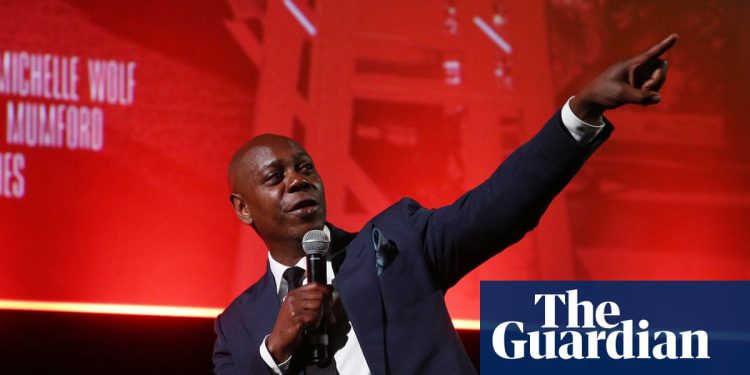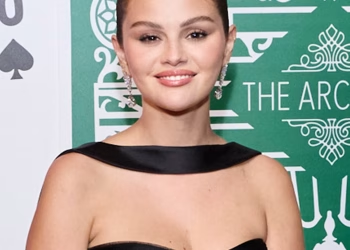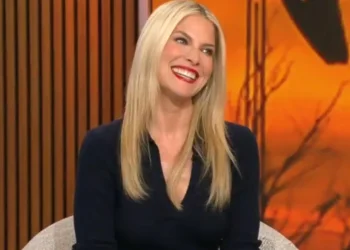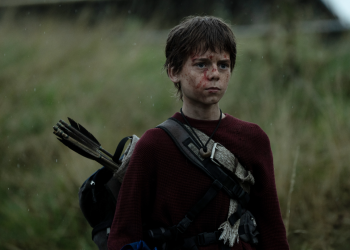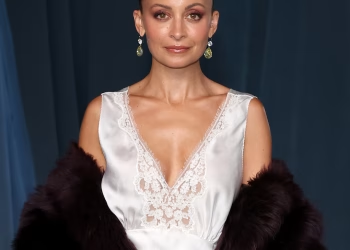To paraphrase TS Eliot: and was it worth it after all? A question to ponder for those who have taken the coin of a government once unequivocally described as “the worst of the worst” by a human rights organization.
Over the past decade, Saudi Arabia has invested in everything from soccer to opera to video games — all part of the regime’s efforts to diversify its oil-dependent economy and reputation for heavy-handed execution.
The latest interest of Mohammed bin Salmane (MBS)? Comedy. The Riyadh Comedy Festival, which ends today, has attracted many big names. Among them: Pete Davidson, Louis CK, Dave Chappelle, Kevin Hart, Aziz Ansari, Whitney Cummings and Jessica Kirson. While most of the artists are based in the United States, Jimmy Carr, Jack Whitehall and Omid Djalili have also appeared as headliners.
Organized by Saudi Arabia’s General Entertainment Authority (GEA), the festival aimed to “amplify Riyadh’s status as a leading destination for major cultural and artistic events.” Or, like Visit Saudi doesn’t In other words: come for the good weather and the entertainment! Stay because you have been arrested!
Festival organizer and GEA president Turki Al-Sheikh is a big fan of culture. Indeed, he republished on X a song celebrating the main suspect in the murder of Jamal Khashoggi.
Interestingly, MBS discovered a sense of humor, as the crown prince wasn’t laughing when Masameer County, a South Park and Family Guy-style satire, was picked up by Netflix and became one of the region’s most popular shows. Instead, its creator, Abdulaziz Almuzaini, was sentenced to 13 years in prison and a 30-year travel ban for “terrorism and promoting homosexuality.”
Others who left MBS with a straight face? Fahad Albutairi, known as “Saudi Arabia’s Jerry Seinfeld,” who was allegedly handcuffed, blindfolded and put on a plane to Saudi Arabia while performing in Jordan in 2018. (He was also allegedly forced to divorce his wife, a women’s rights activist.)
Abdulrahman al Sadhan was sentenced to 20 years in prison for running a parody Twitter account. Tala Safwan, an Egyptian TikTok influencer and prankster, was arrested for a joke with “lesbian subtext.” And in 2018, a specific law was introduced to punish, with prison sentences and fines, anyone producing satire online considered to be “mocking public order”.
So you’d think that the comedians most vocal in their protests against cancel culture — Chappelle, Ansari, CK, in particular — would be hesitant to perform in a country whose predilection for silencing extends to (alleged) bone saw murder.
Pete Davidson said there were no restrictions on the material he could perform, a dubious claim given that Atsuko Okatsuka disclosed a potential contract that was sent to her. The “content restrictions” section detailed anything that “may be considered degrading, defaming or discrediting the public, contemptuous, scandalous, embarrassing or ridiculing…the Kingdom of Saudi Arabia, the Saudi royal family, its legal system…religion.” (Okatsuka declined the offer.)
Another reason: Tim Dillon had his invitation rescinded after making a quip about slavery in the kingdom, as did Jim Jefferies after saying: “A journalist was killed by the government…unfortunate, but that’s not a fucking hill I’m going to die on.” » Present yourself as an absolutely horrible person and not even receive any money? Unfortunate. Oh, and then there’s the fact that Bill Burr, who performed on stage, confirmed that there was censorship. But “the royals loved the show,” he said – so that’s nice.
Perhaps Chappelle, Ansari and CK felt there was less at stake because, by their own estimation, they already suffered one cancellation. Except their exile from public life appears to include new Netflix specials and Grammy Awards. Louis CK should consider himself lucky; if he had been caught with his dick in his hand in Najd, rather than Colorado, he might not have retained any of these appendages (punitive amputation of a limb is a reality).
CK’s position towards murderous dictatorships seems to have changed since this virulent criticism of the Libyan Muammar Gaddafi. But be honest with him in a way to get out of his comfort zone – he really wants to give up weed and yet here he is visiting a place where getting high is common. CK defended himself: “I had a hard time going once I heard what everyone was saying.” Truly, a man of integrity.
Another artist who seems to have discovered her conscience after the fact is Jessica Kirson, a Jewish lesbian comic. Since then, Kirson has tied herself up with knots worthy of a crawling balloon dog. In a post-performance statement, Kirson expressed her “deep regret,” saying she was “surprised” to be asked. This is misleading in the extreme, considering she openly requested an invite on a podcast months ago.
Then there’s Hannibal Buress, widely praised for his important role in the downfall of Bill Cosby; Buress is now receiving money from a government that sentenced a 19-year-old gang rape victim to 200 lashes and six months in prison. During this time, I remember Jack Whitehall doing a sketch about “grown adults getting upset about cartoons.” Presumably he doesn’t mind adults who were so upset by the cartoons that they sentenced satirist Al Hazzaa to 23 years in prison for light-hearted illustrations about fasting.
Of course, the main reason – and here considered primary as a euphemism only – why artists strongly separate themselves from their morals is riyals. On the bill for the state’s Soundstorm festival for next December, for example: Post Malone, Halsey and Tyla. Actors who earned million-dollar salaries for attending the Red Sea Film Festival include Will Smith and Johnny Depp.
At least some comedians have been honest about this financial drain, rather than Kirson, who called the festival a “homosexuality promotion event,” an exaggeration when its sponsors have beheaded people for homosexual activity. Davidson was more direct: “I see the number and I say, ‘I’m going’.” (The SNL alumnus faced particular criticism given that his firefighter father died on 9/11). Chris Distefano said he didn’t want to do it, but his fiancée asked him to “take the damn money.”
A more nuanced view came from Nimesh Patel, who initially said yes before withdrawing. “They offered a lot of money. I’m not in a position to say no to money that changed my life. But it didn’t change my life.” Which, given the people involved, and as David Cross said in a fiery rebuke, will be true for every single one of them. The actor called out to his peers whom he admired and who “would accept this totalitarian fiefdom for… what, a fourth house? A boat? More sneakers?” I guess Davidson likes sneakers.
Of course, some will say that performing in authoritarian or oppressive countries is a way to reach the masses; opening art to those who are underserved. And while that may be true on occasion, it’s another thing entirely to be sponsored by the state itself to whitewash its sovereignty. As Vinny Thomas sarcastically says: “Sometimes, to fight power, you have to be paid by power. »
Others argue that boycotts and cultural campaigns make little difference, although South Africa, BDS and, more recently, Nan Goldin’s dismantling of the Sackler family’s arts patronage prove otherwise. Many comedians joined Cross in condemning, including Nish Kumar, Marc Maron and Zach Woods. In typically frank style, Stewart Lee described the participants as “mean, amoral, crooked bastards.”
And Shane Gillis, Leslie Liao, Stavros Halkias and Mike Birbiglia turned down offers alongside Okatsuka. The stain on the reputation of the actors who defended the Saudi money laundering project? A deep blood red.


